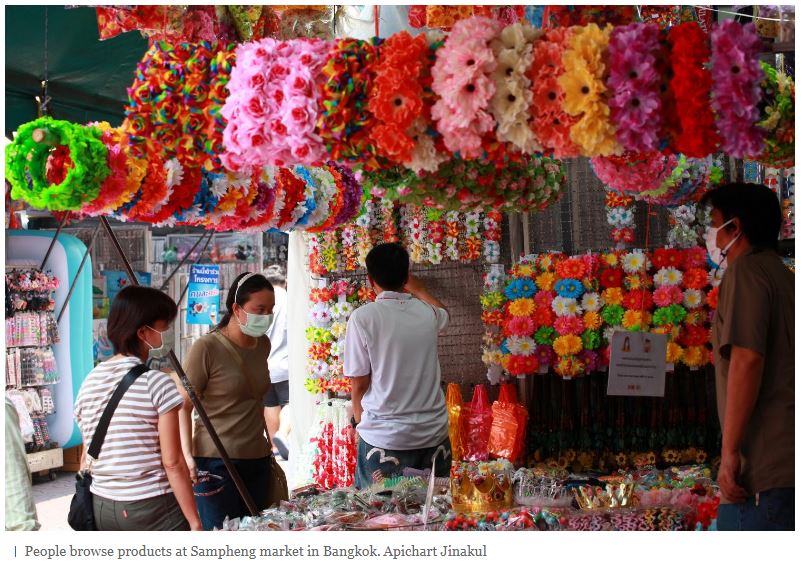World Bank views Thai uptick at 2.9%
Thailand’s economy is expected to expand by 2.9% in 2022, unchanged from a forecast in April, supported by private consumption and a tourism recovery, according to the World Bank.
However, negative spillovers from the war in Ukraine and the lockdown in China highlight Thailand’s oil dependence and vulnerability to global supply chain disruptions, the World Bank said.
Adopting more of a circular economy approach can help promote growth that is more sustainable and resilient to external shocks, according to the World Bank’s Thailand Economic Monitor published on Wednesday.
The economy is expected to gain momentum in the second half and reach pre-pandemic levels in the fourth quarter, given the decline in Covid-19 cases and further relaxation of border restrictions in Thailand and other countries, said the organisation.
Kiatipong Ariyapruchya, the World Bank’s senior economist for Thailand, said the nation’s economic recovery is becoming clearer and sustained. Tourist arrivals are projected to increase to 6 million in 2022, up from 400,000 in 2021, and reach 24 million, or around 60% of pre-pandemic levels, by 2024.
As a result, the bank projects economic growth of 4.3% and 3.9% for 2023 and 2024, respectively.
Headline inflation is projected to stay at a 14-year high over the course of 2022 at 5.2%, with core inflation at 2.3%.
Exports of goods are expected to grow at 4.1% in 2022, slowing after a strong showing of 18.8% in 2021, reflecting softening global demand and prolonged global supply chain disruptions, according to the report.
“As Thailand moves into the recovery phase, it will be important to make progress on fiscal consolidation while rebalancing public spending towards public investment to support the government’s vision to build back better and greener,” said Mr Kiatipong.
According to the report, the war in Ukraine may aggravate poverty in Thailand through high food and energy prices.
The World Bank estimates a 10% increase in the global prices of food would raise the poverty rate by 1.4 percentage points and an increase of 10% in energy prices would raise the poverty rate by 0.2 percentage points.
The circular economy model offers the potential for a more environmentally sustainable and efficient approach to economic production. A transition towards a circular economy could increase Thailand’s GDP by about 1.2% and create nearly 160,000 additional jobs by 2030, representing 0.3% of total employment, according to the report.
Thailand’s greenhouse gas emissions could be reduced by about 5% by 2030, and dependence on imported energy would decline, helping to insulate Thailand from high and volatile commodity prices, said the bank.
Speaking at a separate event, Wuttipong Jittungsakul, fiscal policy advisor of the Fiscal Policy Office (FPO), said the sales of passenger vehicles and motorcycles rebounded in May, reflecting recovering domestic spending.
Sales of passenger vehicles in May rose 29% year-on-year, while that of motorcycles expanded 15.7%.
The collection of value-added tax in May rose 11% year-on-year.
However, the consumer confidence index in May dipped to 40.2 from 40.7 in April, given consumers’ concern about the impact of the Russia-Ukraine war, which has driven up the global oil price.
He said the economy in May was supported by the recovery of the tourism sector.
The FPO projects 6 million foreign tourists this year, while the Tourism and Sports Ministry forecast 9.5 million foreign arrivals, with 2.5 million arrivals already tallied. In May foreign tourist arrivals stood at 521,410, with India, Malaysia, Singapore and the US the main source markets.
The headline inflation rate in May was 7.10%, while the public debt-to-GDP ratio was 60.8%, below the ceiling of 70%.
Source: https://www.bangkokpost.com/business/2336738/world-bank-views-thai-uptick-at-2-9-


 English
English




